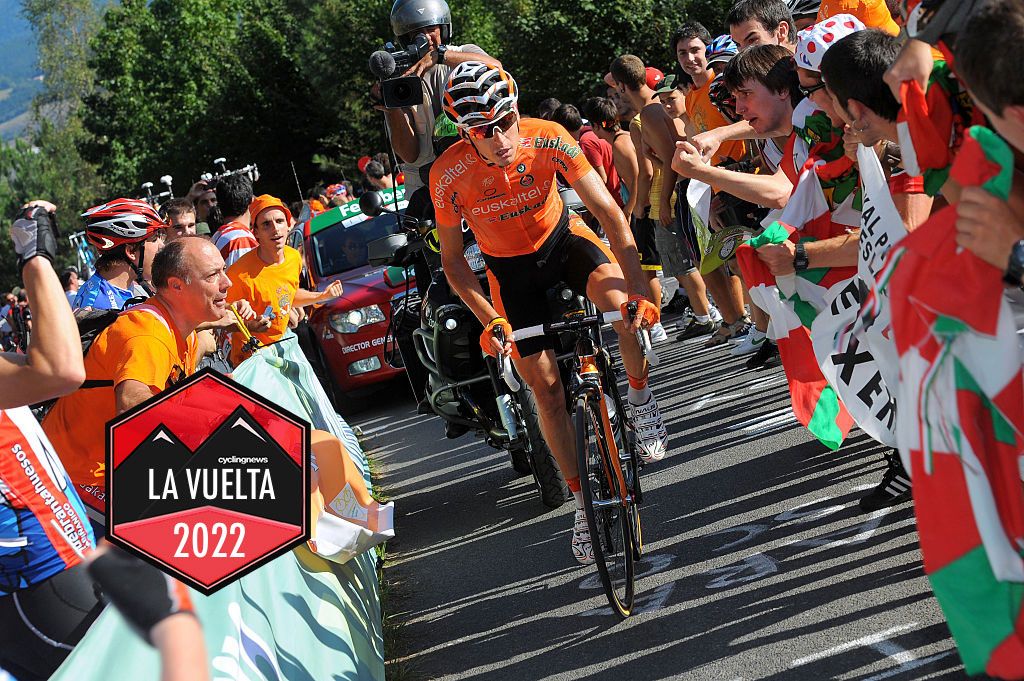From the window of his home near Bilbao, former pro Igor Antón can see almost the full outline of the Alto del Vivero mountain, from the lush green fields and the scattered woodland on its lower slopes to the abandoned fairground and clump of radio antennae at the summit.
And he knows that on Wednesday the Vivero will be lined with thousands of Basque cycling fans, cheering on the riders on their double ascent of the Vuelta a España‘s key climb on Wednesday’s stage 5.
But Antón also knows that the Alto del Vivero was where just over a decade ago, he was a key actor in one of the most important pages of the Vuelta’s 86 years of history. And come what may on Wednesday, whether another Basque wins or not, that memory is Antón’s alone.
To recap, 2011 was when the Vuelta finally returned to the Basque Country after a semi-enforced 33-year absence due to a tangle of political and economic reasons. But it returned in style as Antón, racing for local Basque team Euskaltel-Euskadi, led the Vuelta in a break as it crossed into the region, first riding through his hometown of Galdakao at the foot of the Vivero and then onto the nearby city centre in Bilbao.
Applauded and cheered on by a huge crowd of local fans, given the significance of the stage, that effort alone would have earned him at least a mention in the Vuelta history books. But then Antón did it all over again, after dropping his breakaway companions with 18km to go and going solo over the top of the Alto del Vivero.
He was en route to a victory which, in terms of the rider, the result, the team, and the race’s background, ticked every box for maximum emotional impact possible, all in one fell swoop.
Antón hasn’t moved on, geographically speaking, still living in the place where he grew up and close to where he took the most significant win of his career. But even if he had left Galdakao, and arguably even if he had not won in Bilbao 12 years ago, in many ways the importance of El Vivero would remain intact for him, nonetheless.
“Ever since I was a kid, El Vivero was the mountain which formed me as a bike rider and where I grew up as a kid, too,” Antón, who retired at the end of the 2018 Vuelta, tells Cyclingnews.
He’s recounted elsewhere that he and his schoolmates would play in the trenches dating from the Spanish Civil War – nearly a century earlier – that crisscrossed El Vivero and that he would cross the mountain on the way to his grandparents’ smallholding farm.
Then, later on, he says, “We’d go…
Click Here to Read the Full Original Article at CyclingNews RSS Feed…

